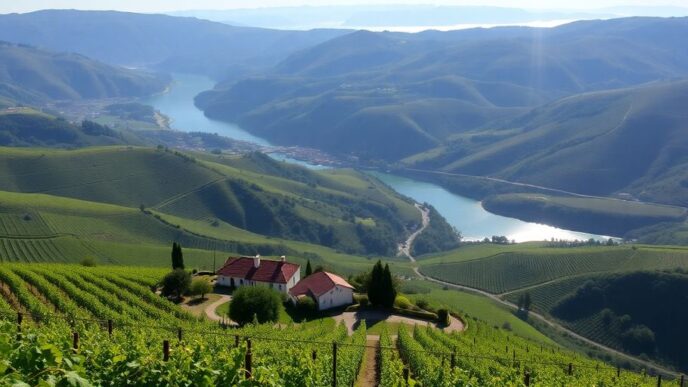The iconic wine industry in Portugal is facing a significant downturn as sales of its renowned port wine decline. Many local grape growers are struggling to find buyers for their crops, leading to a sense of abandonment and frustration in the Douro Valley, a region celebrated for its picturesque vineyards and rich winemaking history.
The Douro Valley, known for its terraced vineyards and rich history, is home to small plots of land, averaging just two hectares. These small growers often rely on larger estates, known as “quintas,” to sell their produce. However, with the decline in port wine sales, many are left without buyers.
The decline in port wine sales can be attributed to shifting consumer preferences. Globally, wine consumption is decreasing, particularly for products like port that are traditionally consumed before meals. As a result, the volume of port wine sold has fallen significantly, impacting the livelihoods of many growers.
To combat the oversupply issue, the Port and Douro Wines Institute has cut the production quota for port wine from 104,000 barrels to 90,000 barrels for the current year. Each barrel contains 550 liters. However, industry experts argue that this reduction is still insufficient given the existing stockpiles.
The Douro Valley, with its unique heritage and world-famous products, has the potential to thrive, but it requires a concerted effort from all involved to navigate these turbulent times. Without significant changes, many growers may find themselves with unharvested grapes and dwindling prospects for the future.












